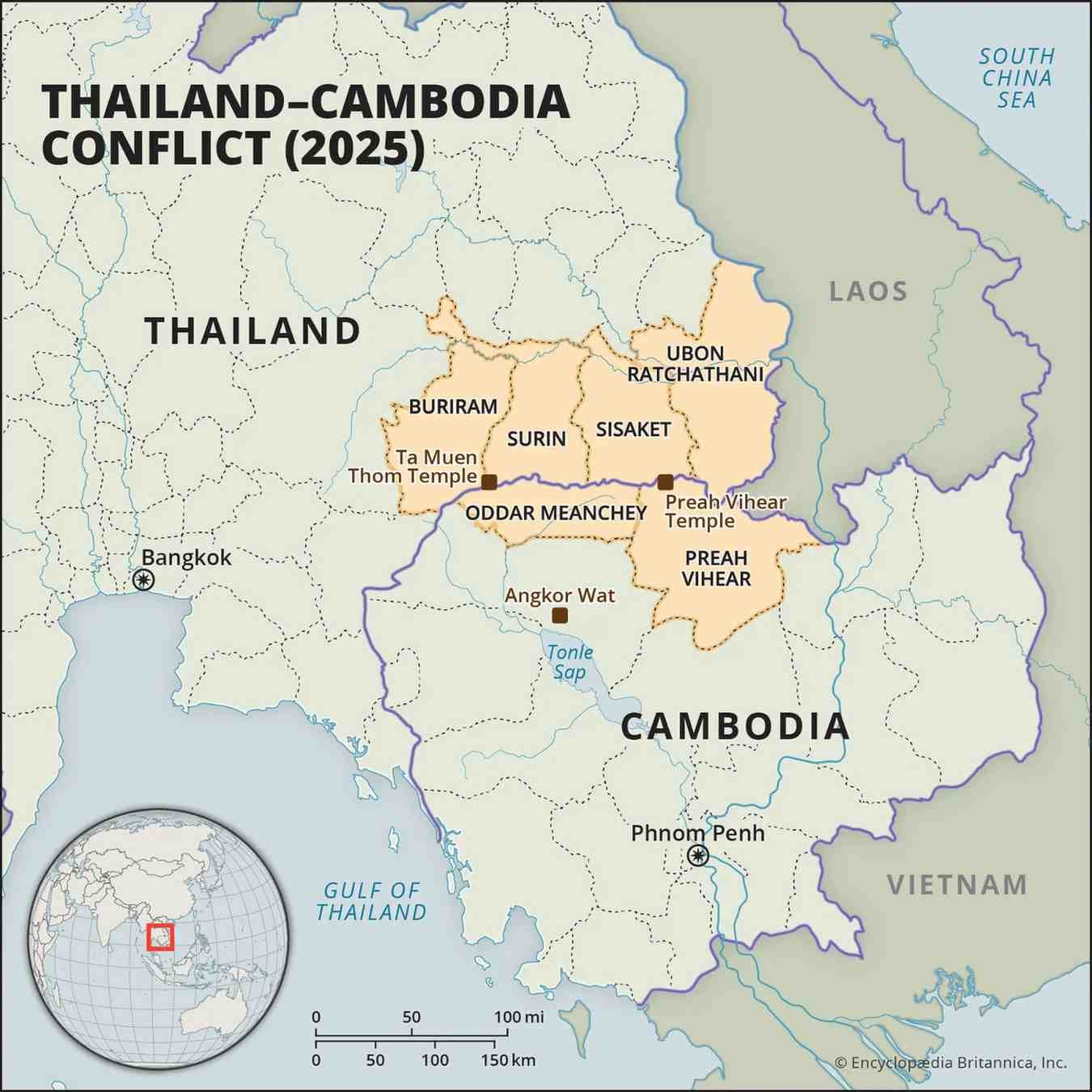Cambodia border trade tensions have reached their highest point in years, shaking both economies. What began as a border dispute has now grown into a full-blown political and psychological conflict, with serious damage to trade, investment, and local livelihoods. Let’s talk about it.
Trade Collapse and Economic Fallout Due To Cambodia Border Trade Tensions?
In 2024, trade between the two neighbors totaled $10.45 billion. Border crossings were vital routes for agricultural goods, manufactured products, and labor. But by July 2025, border trade nearly vanished. It plunged by almost 100%, dropping to only 376 million baht, about $10 million, after violent clashes forced the closure of all 18 border checkpoints.
Thailand estimates losses of $3.1 billion from the disruptions tied to the conflict. This collapse hit small traders and major industries alike. Factories reduced shifts, logistics companies rerouted goods, and cross-border transport ground to a halt. Communities that depend on daily trade have faced severe hardship.
A Conflict Beyond Borders

Amid the economic losses, a disturbing new front has opened, and it’s called psychological warfare. Since October 2025, Cambodia’s human rights commission has documented strange “ghost-like” sounds broadcast along the disputed frontier at night. These high-pitched noises, that is described as wailing children, howling dogs, rattling chains, and roaring helicopters, have caused fear, sleeplessness, and physical distress among residents, especially the elderly, women, and children.
Former Cambodian Prime Minister Hun Sen publicly accused Thailand of using psychological operations to intimidate border communities. The Thai government has not officially responded to these allegations. The eerie broadcasts have deepened mistrust and stirred anger in border towns already suffering from trade losses.
Read Also: Can Cambodia Border Trade Restart Heals Old Wounds?
Investments and Jobs Under Pressure
The fallout from Cambodia border trade tensions extends beyond trade. Thai businesses have invested around $3.785 billion in Cambodia, employing over 62,000 Cambodians. Many of these companies have been forced to suspend operations or pull back staff because of safety fears. Banks near the border have temporarily closed. Companies are stockpiling goods and tightening security amid worries about possible attacks on Thai assets.
Local business groups in both countries are urging leaders to reopen dialogue. They warn that prolonged conflict will further erode confidence, scare off investors, and damage border economies built over decades of cooperation.
Cambodia Border Trade Tensions: Tourism and Daily Life Disrupted
The once-busy tourism flow between border temples and markets has dried up. Areas that once welcomed traders and visitors now stand empty, guarded by soldiers instead of shopkeepers. Agricultural and industrial sectors in both countries are feeling the strain, as supply chains break and local income falls. For families living along the border, the loss is both economic and emotional. Their livelihoods are tied to a relationship now defined by suspicion.
Read Also: Cambodia Smart Tourism Infrastructure Evolves Fast for 2030
A Fragile Future for Regional Stability
The current situation reflects how fast political and military disputes can destroy years of progress. With border trade nearly at zero and investment confidence shaken, the Cambodia Border Trade Tensions are now a major concern for regional stability. The combination of economic loss and psychological pressure could have long-lasting effects if both sides fail to restore communication and trust.
FAQs
1. What caused the Cambodia Border Trade Tensions?
The tensions stem from recent clashes, border closures, and accusations of psychological warfare between Cambodia and Thailand.
2. How much trade has been lost due to the conflict?
Trade dropped from over $10 billion annually to near zero, with Thailand predicting losses of $3.1 billion.
3. What are the “ghost sounds” mentioned by Cambodia?
Cambodia reports high-pitched noises like wailing and rattling along the border, which it calls psychological warfare.
4. How many jobs are at risk from the border dispute?
Over 62,000 Cambodian workers linked to Thai investments may be affected by closures and safety risks.
5. How can businesses adapt to such disruptions?
Consulting firms like Market Research Cambodia provide risk management and recovery strategies for companies facing instability.
